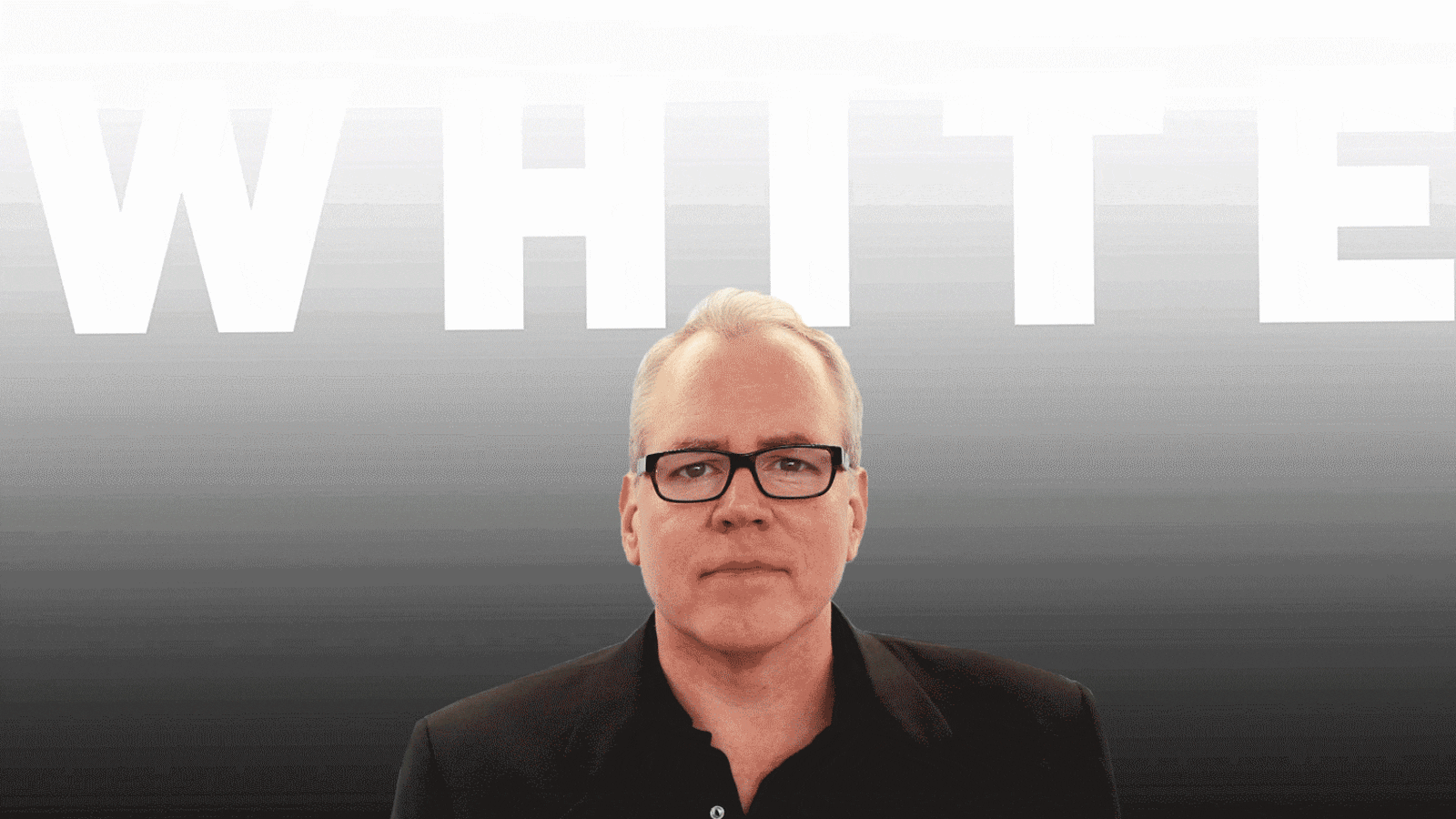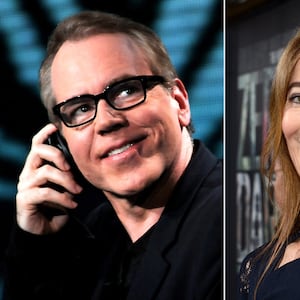I’ve admired Bret Easton Ellis’s writing, and I’ve owed him a personal debt.
Now, I have a question for him: What the fuck is wrong with you?
It was on page 252, when I read your defense of uber-grifter Candace Owens as “a young and pretty and compelling black woman,” that it occurred to me that you might not be writing in good faith.
When I heard that you had written a book for the Trump era called White that was basically designed to trigger the libs, I hoped that people were taking creative license. They were not.
I can’t remember exactly when I met Bret, but I suspect it happened shortly after the publication in 2000 of my first novel, Normal Girl, which was part memoir and part anti-parent polemic. I had longed to be him (and Jay McInerney). I’d had a blistering cocaine problem as a teen, just like their protagonists, and loathed my affluent family. The only difference was that I was fresh off a stint at Hazelden, where I’d pored over Less than Zero, studying its sparse sentences and aspiring to be one of the cool nihilists they captured.
But it wasn’t until later during the zero zeroes that I really got to spend some time with Bret. My career had flamed out; I was raising small children and trying not to look too bored. Bret had decided he wanted to write movies, but after the success of American Psycho, all his books were already optioned for films. He needed a vaguely nihilistic coming of age novel like Less than Zero, but not as successful. And so, he decided to write a screenplay of Normal Girl. It was one of those Hollywood situations which I almost immediately knew would come to nothing, but it was fun to tell people my hero was writing a screenplay based on my autobiographical coming-of-age novel, which I had written under the influence of his autobiographical coming-of-age novel.
My memory of our first meeting is hazy and awkward, so in the spirit of my subsequent encounters with him. I remember meeting Bret in New York; my husband remembers me meeting Bret in Los Angeles. Wherever we were, he wore a sport coat and was quiet. He acted like a certain kind of celebrity or very wealthy person, not warm and not particularly interested in me. I tried to entertain him, but he seemed bored. I also remember having the distinct feeling that he was also sort of down on his luck, too. There was a palpable feeling that neither of us was in our salad days. I got the sense (and again I’m extrapolating) that Normal Girl was not his first choice to adapt. The producer who connected us was extremely enthusiastic, but Bret didn’t really seem to be. I also remember an agent describing as “icky” a rape scene he added at one point to his adaptation of my autobiographical novel.
A few days later, he invited me to a Halloween party at his apartment in the American Felt Building on 13th Street, right before he relocated to L.A.. It was a large, L-shaped studio apartment with a kitchen island and a terrace. I remember feeling super uncomfortable. He was slightly friendlier then, and we talked about his coming move. Again, I had the distinct feeling that the best years of both of our lives were behind us, that we’d peaked somehow and not known it.
We shot some emails back and forth. Bret wrote the script. Later, I was told he asked one of the producers to do the rewrites because he was busy. I knew he was too good for the project in the first place and I didn’t much mind it. My brother read coverage of the script that said it was bad. My brother also read coverage of the script that said it was good. Either way, I always felt that Bret had done me an enormous favor and I owed him.
But after reading White, I can say definitively that Bret Easton Ellis has cured me of that feeling of owing him. White is the work of the thinking man’s Diamond and Silk. Maybe Bret’s not really a MAGA grifter the way they are; perhaps he just has an aesthetic distaste for the politics of resistance, or is bored with the left’s fight against Trumpism.
Distaste and boredom strike me as an odd position on which to base an entire book, but he manages it. “I no longer could even pretend to sympathize with this hysteria; even as a metaphor,” he says, “it was weak and basically moronic.”
He elaborated on his distaste for his own subject matter in an interview with Isaac Chotiner in The New Yorker, “I am not that interested in politics. I am not that interested in policy. What I was interested in was the coverage. Especially in Hollywood, there was an immense overreaction. I don’t care really about Trump that much, and I don’t care about politics. I was forced to care based on how it was covered and how people have reacted.”
Affected indifference is always a luxury of the wealthy and insulated, and much more so in this time of Trumpism. Between defending his provocative tweets and musing about his many excellent writing gigs, the book includes countless anecdotes of meals with friends who, Bret feels, overreacted to Trumpism. “I attended a pre-Oscar party where two wealthy players at our dinner table spent the entire time complaining about Trump,” Bret bemoans. Later, he writes, one of them “explained to me that his wife had been having ‘breakdowns’ ever since the inauguration.”
Reading pages and pages of Bret’s disdain towards his friends because they’re upset about the rise of nationalism is exhausting, and strangely interspersed with serious (and very out of place) film criticism.
The idea of being as famous and talented as Bret and using your enormous platform to own the Hollywood libs for caring too much about jailing children isn’t simply an act of hubris, but one of catastrophic bad faith. It’s possible a hatred of earnestness is one of the reasons we got Trump.
What the fuck happened?
As a recovering novelist, perhaps I understand Bret’s dilemma better than most. Many people no longer read novels during the time of Trump; even those who still have the attention span to write them, which I do not. There is little place left for parody in a world beyond parody. Saturday Night Live often feels tame compared to the president’s actual rally rantings and White House antics.

That appears to leave two uncomfortable choices for where Bret has landed with White:
One is that he’s a become a kind of literary grifter, content to live off the fat of Trumpism, and happy to play this game because he has historically thrived on outrage and is working to find a new audience among the MAGAs.
The other possibility is that Trump is the only choice of a true nihilist. If nothing matters, why not sit back and enjoy the destruction? The most likely explanation is a little bit of both.
As unpleasant as it is to call out your literary heroes, I will not sit by and watch my country devolve into absolute kakistocracy because earnestness is clichéd, and I will not stop giving a shit when the president presides over the tear-gassing and jailing of immigrant children, and MAGA vigilantes and white supremacists gun down people gathered in prayer.
I’m sorry that Bret is bored with discussions of how our country is teetering on the brink of fascism, but our duty as citizens matters now. His aesthetic preferences seem deeply selfish—one might even say moronic.







